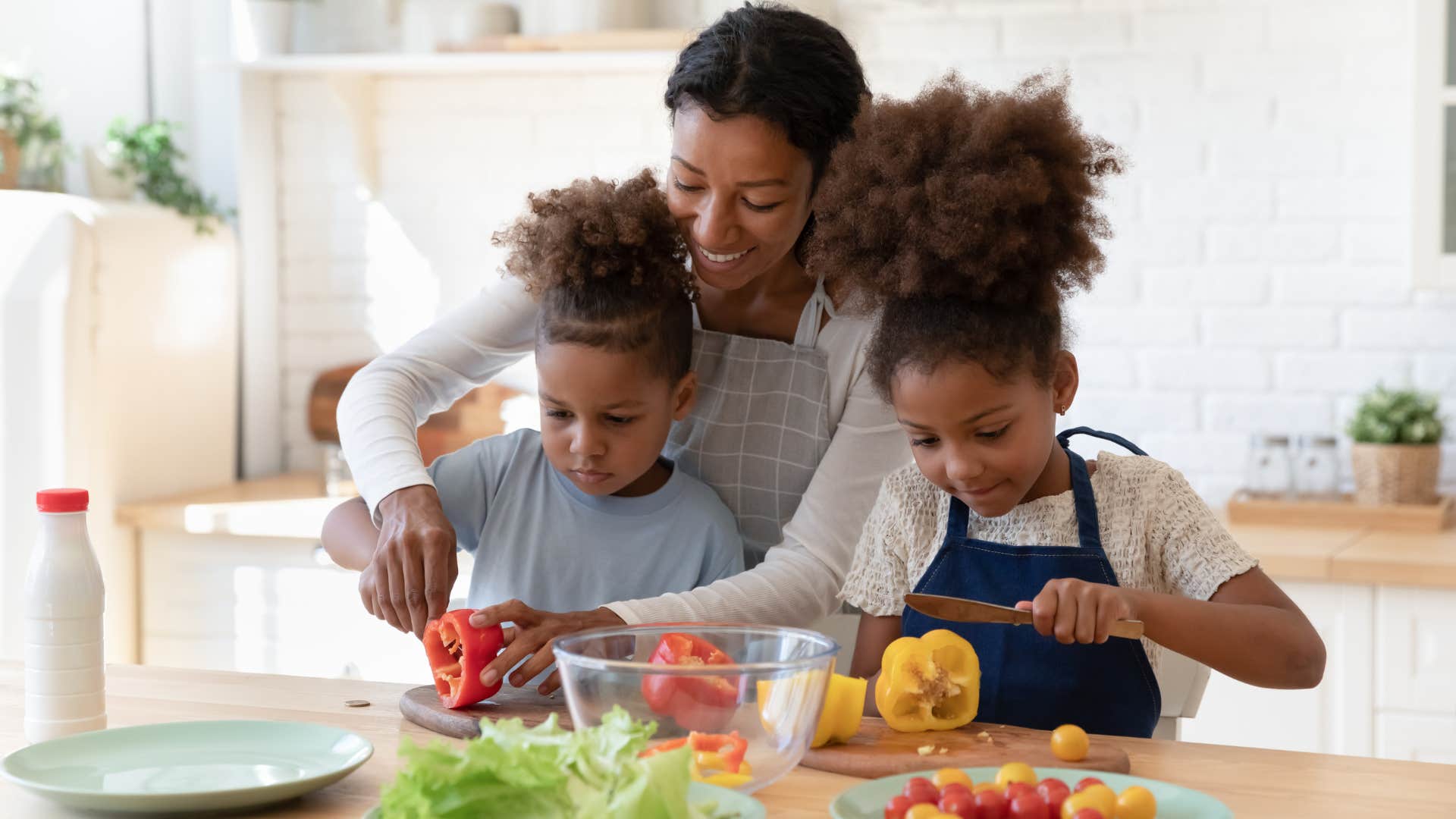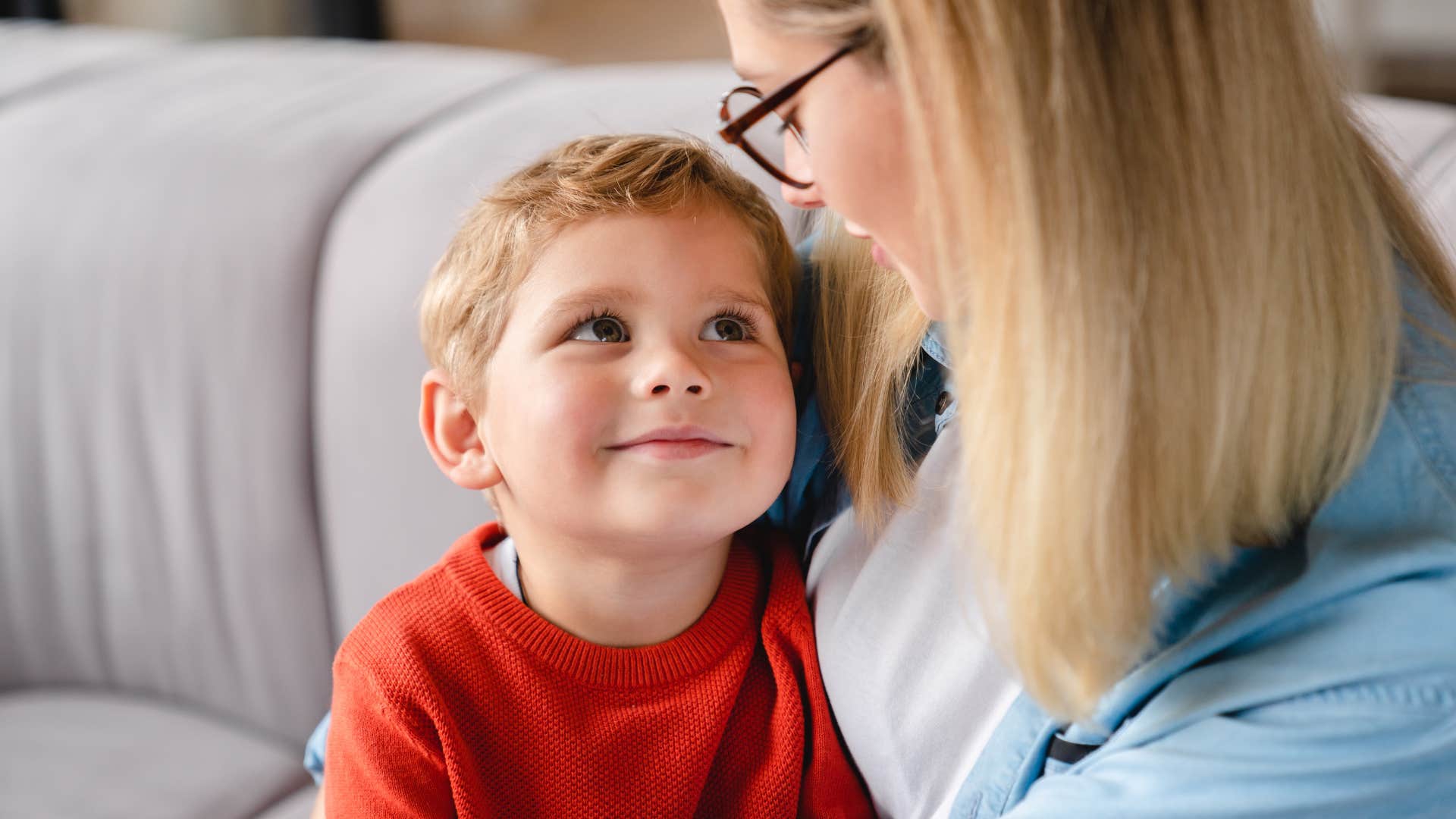If Your Goal Is Mutual Respect With Your Child, Say Hello To These 6 Behaviors
If you want a stronger bond built on trust and understanding, these daily habits can help you nurture mutual respect with your child.
 mellangatang | Canva
mellangatang | Canva Raising children with mutual respect creates a beautiful dynamic where both can grow and learn together. This approach is founded on the knowledge that respect isn't something children need to earn through expected behavior, but a fundamental way of honoring them as individuals.
Instead of demanding obedience, these parents take the time to explain their reasoning and invite collaboration with their children in problem-solving — a type of modeling that creates a powerful ripple effect. Children who experience respect at home naturally carry these skills into their friendships, classrooms, and eventually their future relationships and families.
If your goal is mutual respect with your child, say hello to these 6 behaviors:
1. Maintain a daily routine
 fizkes / Shutterstock
fizkes / Shutterstock
A consistent routine will be helpful for your child. Schedule meals, chores, and bedtimes at regular times. Your child will appreciate it, and so will you. Children need to know what is expected of them and who’s in charge. This will help your child feel safe and loved.
When children experience predictable routines, they develop a sense of trust, learn to manage their emotions, and are better equipped to interact positively with others, all of which contribute to a more respectful relationship with their parents. A 2023 study on routines and child development explained that routines can help minimize power struggles by creating clear expectations and boundaries.
2. Set up a support system
 Miljan Zivkovic / Shutterstock
Miljan Zivkovic / Shutterstock
You don’t have to do it all. Whether you need someone to watch your kids while you run errands or you need someone to talk to when you feel overwhelmed. Make sure you have a support system in place and then have a backup.
Research suggests that when parents actively provide emotional, practical, and social support, it promotes positive parent-child relationships, leading to increased trust, open communication, and a stronger sense of security for the child. Children who grow up in supportive and respectful environments are less likely to exhibit behavioral problems and more likely to develop positive social skills.
3. Treat kids like kids
 fizkes / Shutterstock
fizkes / Shutterstock
It’s easy to rely heavily on your children for comfort, compassion, and support, but children are not mature enough to handle this. They will not be able to support you the way an adult can. It can also leave them feeling confused.
If you find yourself leaning too much on your kids when you are frustrated, then it may be time to reach out to a friend or family member. If that’s not enough, then talk to a professional.
This approach can lead to increased self-esteem, confidence, and a stronger sense of identity in children, while also promoting positive behavior and a healthy family dynamic. One study cautioned that every child is unique, and their personalities and reactions to parenting styles will vary.
4. Answer your kid's questions honestly
 Inside Creative House / Shutterstock
Inside Creative House / Shutterstock
Your children deserve it. Questions are bound to come up from your children — kids are naturally curious creatures. Instead of trying to cover up the truth or ignore the question, if it's uncomfortable or awkward, answer it. Make sure you answer it respectfully, without putting the other parent down.
Your child must be able to express their emotions. If they can’t express their emotions, it could lead to anxiety or depression. Nobody can keep everything in. If they are younger, answer questions with age-appropriate answers. Games and art can be helpful here.
5. Remove guilt from your vocabulary
 fizkes / Shutterstock
fizkes / Shutterstock
As a parent, it’s easy to feel guilty. You feel guilty about the things you don’t have or what you can’t provide for your child. The best thing you can do is spend time with your child.
So, make the most of what you have. If you can’t stop thinking about what you can’t provide, make a list of what you can provide. The children have a roof over their heads, food on the table, and a loving parent. Remind yourself, you are doing the best you can, and you are a great parent.
Parents who experience high levels of guilt about their parenting are more likely to report frustration and perceive parenting as demanding. Research suggests that self-compassionate parents are more likely to engage in positive parenting behaviors, such as providing warmth and support, and are less likely to be overly critical.
6. Stay positive
 DimaBerlin / Shutterstock
DimaBerlin / Shutterstock
It’s easy to feel overwhelmed and be hard on yourself. As a parent, there are a lot of responsibilities. Stop beating yourself up with the negative talk in your head. Your children are also affected by your negative moods.
It’s important to take care of yourself. Exercise regularly, eat healthy, and schedule time for yourself. This will help you revive and keep a positive attitude.
I admire all the parents out there. You have taken on one of the toughest jobs: raising a child. It’s a full-time job and you don’t get many breaks. Try to stay focused in the present. Good things lie ahead.
Lianne Avila is a Licensed Marriage & Family Therapist. She is dedicated to helping couples and has completed Levels 1, 2, and 3 at The Gottman Institute.

